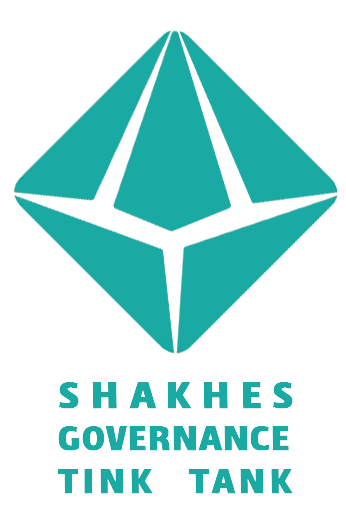What is a Think Tank? Its Characteristics and Differences from Policy Research Institute
In today's world, which is facing rapid and complex transformations, the need for deep and strategic analyses to address various social, economic, and political issues is felt more than ever.think thanksas one of the key institutions in the field of policymaking and scientific research, it plays a significant role. In this note, we will discuss the concept of a think tank, its characteristics, and how it differs from conducting research. Finally, we will introduce the Governance Think Tank Index, which can help address the challenges faced by its audience.
The Concept of a Think Tank
Think Tank Think Tank is recognized as a research and advisory institution that operates in various fields such as politics, economics, culture, environment, and other social domains. These institutions primarily aim to assist policymakers, governments, organizations, and even the general public in making informed decisions through analysis, research, and knowledge production. Think tanks typically function independently of governments and political parties, which enables them to provide analyses and recommendations from a scientific and impartial perspective.
Think tanks can take various forms, including governmental, private, or nonprofit organizations. These institutions utilize interdisciplinary teams of specialists to analyze social, economic, and political issues, providing reports, articles, policy briefs, and practical recommendations to their audiences.
Characteristics of a Think Tank
Think tanks have distinct characteristics that set them apart from other research institutions. Below are some of their most important features:
- In-depth and Comprehensive Analyses:
Think tanks place a strong emphasis on scientific and strategic analyses. These analyses are typically based on reliable data, field research, mathematical models, and comparative studies between countries or different systems. The conclusions drawn by these institutions are often practical and useful for policymakers and decision-makers. - Focus on Policy-Making:
One of the most important characteristics of think tanks is their connection to policymaking processes. In addition to conducting scientific research, think tanks seek to influence policies and major decisions of countries and organizations. Therefore, generating practical recommendations to address social and economic challenges is a core objective of think tanks. - Freedom and Intellectual Independence:
Think tanks are typically recognized as institutions independent of governments and political parties. This independence allows them to publish their analyses and reports without being influenced by special interest groups or political pressures. - Specialized and Diverse Teams:
Think tanks consist of diverse groups of experts and specialists with academic, technical, and operational backgrounds. These teams collaboratively analyze various issues and provide comprehensive and practical recommendations and solutions. - Relationship with Public Opinion and Media:
Think tanks maintain close connections with the media and public opinion, striving to widely disseminate their research findings through reports and articles to enhance awareness among both the general public and policymakers regarding various issues. - Reporting and Dissemination of Findings:
One of the key characteristics of think tanks is the production and dissemination of documents, articles, and reports that can influence decision-making processes. These reports may be published in the form of guidebooks, analytical articles, policy briefs, and detailed reports.

تفاوت اندیشکده با پژوهشگاه
Although think tanks are recognized as research institutions, there are significant differences between think tanks and conventional research activities. Below are some of these distinctions:
- Purpose and Application:
Research primarily seeks to discover new facts and expand the boundaries of knowledge in a specific field. In contrast, the main goal of think tanks is to analyze and examine existing issues and provide practical and applicable solutions to address problems. Think tanks are more focused on influencing policies and executive decisions. - Types of Activities:
Researchers may focus solely on data collection, analysis, and writing scientific articles. In contrast, think tanks not only engage in research but also undertake advisory, educational, and communication activities. They aim to influence policies by offering practical recommendations and solutions. - Relationship with Policymakers:
Researchers may not have direct connections with policymakers, whereas think tanks actively engage with policymakers and decision-makers. Their goal is to influence major decisions and provide practical information and analyses to improve policies and strategies.

Shakhes Governance Think Tank
Given the characteristics and objectives of think tanks, the "Governance Index Think Tank" can be recognized as a specialized, effective, and independent institution for addressing governance and policymaking challenges in countries and organizations. This think tank, focusing on governance as a complex and multidimensional issue, utilizes various research tools and methodologies to analyze and assess the performance of governance systems.
Characteristics of the Shakhes Governance Think Tank:
- Comprehensive and Interdisciplinary Analysis: The Shakhes Governance Think Tank analyzes governance issues from various economic, social, political, and cultural perspectives and provides practical recommendations for improving governance systems.
- Collaboration with Government and Private Sector The Shakhes Governance Think Tank collaborates with both the government and private sector to analyze and develop practical policies for improving governance.
- Focus on Transparency and Accountability: One of the key areas of focus for the Shakhes Governance Think Tank is strengthening transparency and accountability in governance processes. This effort can contribute to improving the performance of government institutions and reducing corruption.
- Encouraging Public Participation The Shakhes Governance Think Tank aims to strengthen public participation in governance processes and utilizes modern tools such as media and advanced technologies to achieve this goal.
- The Shakhes Governance Think Tank, through precise analysis and data-driven solutions based on scientific and empirical evidence, can contribute to resolving governance challenges, enhancing transparency, improving high-level decision-making, and promoting sustainable development. It provides its audience with effective strategies and solutions.
»Shakhes Governance Think Tank«can be recognized as a specialized, effective, and independent institution in addressing governance and policymaking challenges for countries and organizations.
Think tanks, with their unique characteristics, can be recognized as influential institutions in policymaking and governance. They not only engage in research but also seek to impact executive decisions and address social and economic issues. The Shakhes Governance Think Tank, with its focus on scientific analysis and practical solutions, can play a key role in improving governance and solving complex societal challenges.










No comments